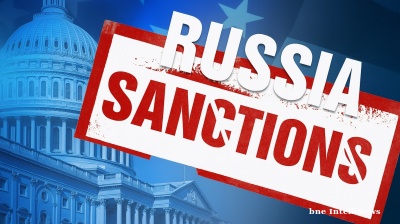The victory of the populist, eurosceptic ANO party in Czechia’s parliamentary election on October 6 will likely usher in a looser fiscal stance that supports growth and reinforces the Czech National Bank’s recent hawkish shift, Nicholas Farr, emerging Europe economist at Capital Economics said in a note.
“Fiscal policy will likely be looser under an ANO-led government,” said Farr. “During the campaign, ANO criticised the outgoing administration’s conservative fiscal policy and pledged to invest Czechia out of its weak growth performance.”
The party has promised to cut the corporate tax rate from 21% to 19%, cap the retirement age at 65, and increase family benefits.
ANO, led by former prime minister and billionaire businessman Andrej Babis, secured 35% of the vote, outperforming pre-election polls. The centre-right SPOLU coalition, led by outgoing prime minister Petr Fiala, won 24%. More extreme anti-EU parties performed poorly: the far-left Stačilo! failed to pass the 5% threshold to enter parliament, and the far-right SPD won just 8%, well below the 13% projected in opinion polls.
“The worse-than-expected performance of the more extreme parties suggests that ANO won’t have to concede much to its potential governing partners,” Farr noted. “While ANO will likely seek support from SPD and the anti-green Motorists Party to achieve a majority, the low showing of the SPD will ease fears that Czechia might shift away from its pro-Western path.”
That said, Farr warned that “an ANO-led government could still lead to less harmonious relations with Brussels,” particularly over issues such as climate policy and immigration.
“ANO will likely push for greater sovereignty in decision making, but the risk of a destabilising breakdown in EU relations appears low.”
Although Babis has expressed hopes of forming a single-party government, some form of agreement with other parties will be necessary to govern. ANO has indicated it will begin 2026 on a provisional budget, suggesting a delay before any fiscal stimulus is implemented.
Still, Capital Economics expects a modest fiscal loosening of 0.5–1.0% of GDP under ANO.
“We think this could add 0.2–0.3 percentage points to GDP growth per year over the next couple of years,” Farr said.
With public debt at 43% of GDP—low relative to regional peers—such stimulus is unlikely to alarm bond markets, though Farr cautioned that ANO “would have to tread a fine line to avoid concerns about debt dynamics creeping in.”
On monetary policy, the shift in fiscal stance may heighten inflation risks.
“There are question marks over the amount of spare capacity in the Czech economy,” Farr said. “Capacity utilisation in manufacturing and services is around historic norms, and unemployment is low at close to 3%.”
Capital Economics now sees interest rate risks tilting upwards.
“We are maintaining our forecast for the CNB to hold its policy rate at 3.50% over the coming year,” said Farr. “This is already more hawkish than the consensus, which still sees scope for one more 25 basis point rate cut in 2026. But if anything, the risk is now skewed towards the next move being a hike.”
Opinion

COMMENT: Ukraine's drone attacks on Russian refineries have probably reduced throughput by 30.4%, less than headline figures suggest
Ukraine has been hitting Russian refineries and caused a fuel crisis that has spead across multiple regions. The headline figure is that oil refining has been reduced by 38% since August, but digging into it and the reduction is likely less.

MACRO ADVISORY: The unintended consequences of Western sanctions
Since 2014, Western nations have hit Russia with a total of 26,655 sanctions (to mid-September 2025), with 23,960 coming after February 2022. The largest target group, with 13,611 sanctions, is state officials, business owners, and oligarchs.

PANNIER: Few will mourn passing of Turkmen Iron Lady Atajanova and Uzbek Grey Cardinal Jurabekov
Their deaths seem to have been conveniently overlooked for the most part by the authorities of today.
_Cropped_1759411324.jpg)
COMMENT: How Kyrgyzstan is becoming a Chinese province
Central Asia lies at the crossroads of major geopolitical and regional interests. Until recently, the countries of the region managed to balance between Russia, China, Turkey, and the collective West. Now China plays an increasingly impoortant role.


.jpg)

